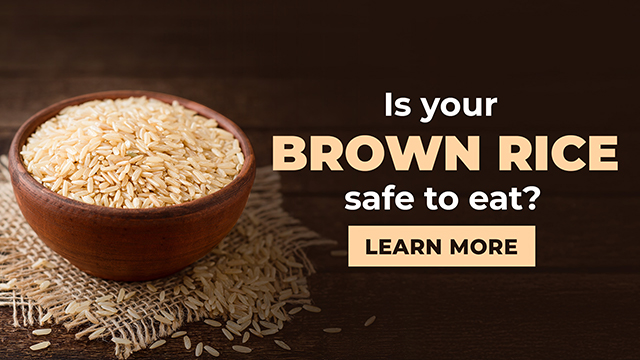| Rice is a staple of many cultures around the world. A reliable source of calories (energy), various nutrients and even potent antioxidants, many people have relied on this grain for sustenance for decades. Cooked rice goes well with savory, sour and spicy dishes and can even be used to make sweet desserts. Brown rice is a whole grain and offers considerably more nutrition than white rice. According to analysis, you can get more fiber, B vitamins, iron, magnesium, phosphorus and potassium from brown rice. Brown rice also boasts high amounts of phenolic acids, flavonoids, anthocyanins and proanthocyanins, and the antioxidant vitamin E. But here's what's worrying consumers about brown rice: According to a recent study, brown rice contains about 40% more inorganic arsenic than other kinds of rice. A highly toxic metal that comes from soil, arsenic accumulates in the outer layers of rice grains and can cause serious health issues in both children and adults. Fortunately, studies have found simple yet effective ways to mitigate this risk. In this feature article, you will learn all about brown rice, its nutritional benefits and potential health risks, and ways you can enjoy this superfood without worrying about arsenic and other toxic pollutants. | 
